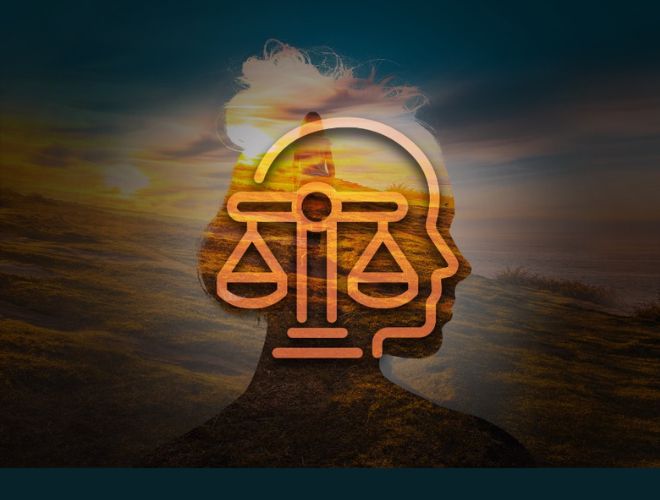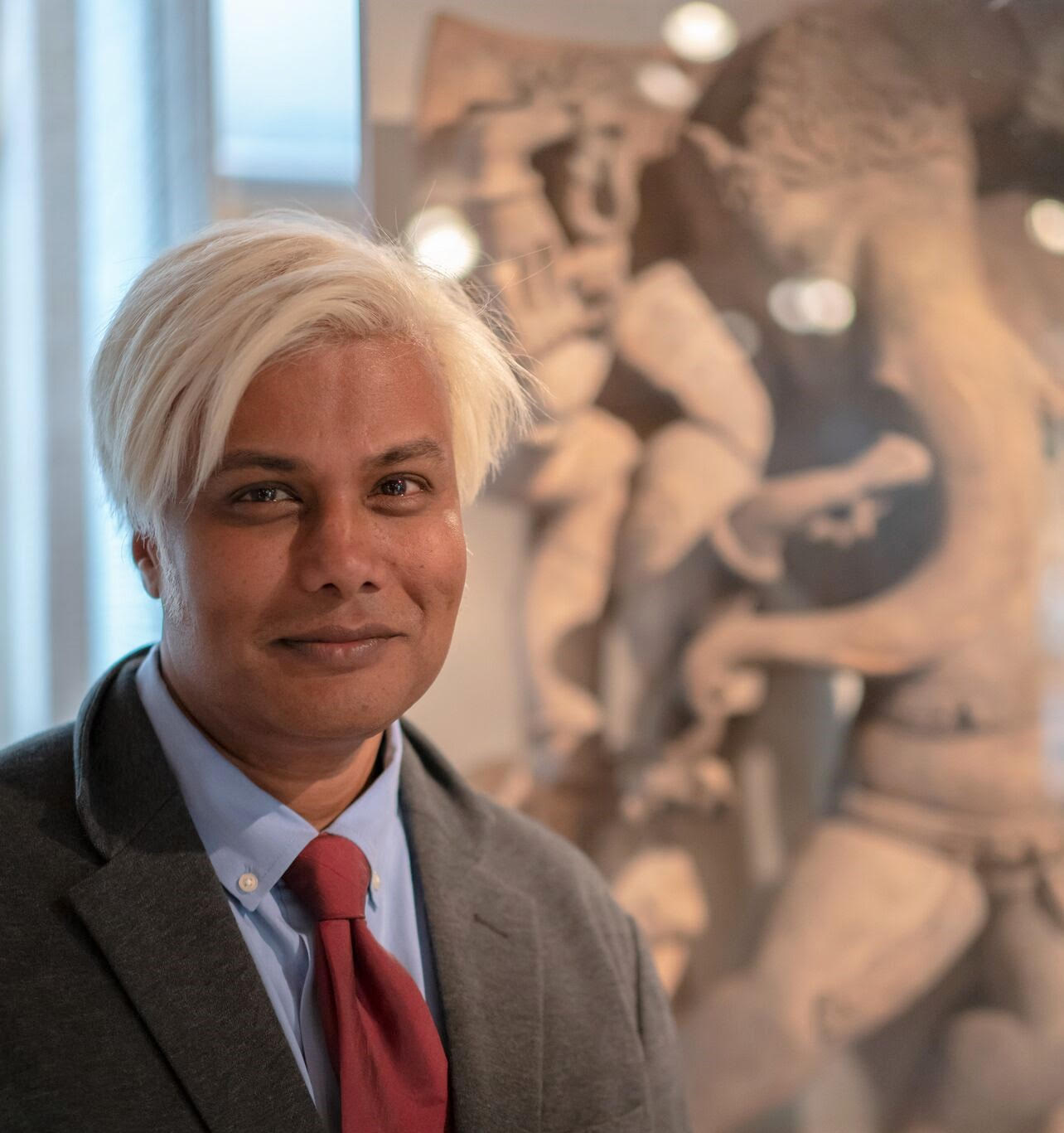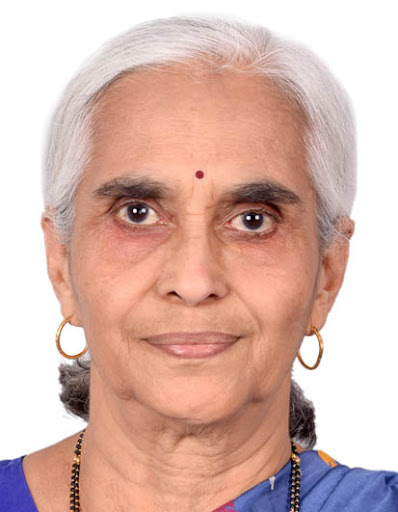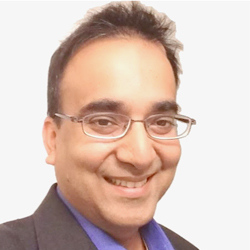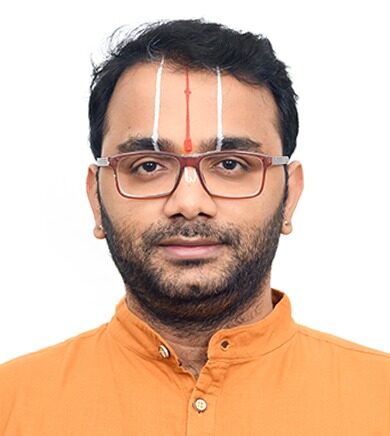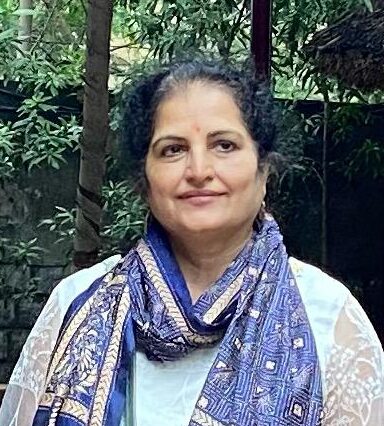INDICA welcomes you to Hindu Ethics – Lessons from Dharma Sankatams in Vedic Texts, an online symposium planned on the 20th of August 2023.
In the vast landscape of human thought, few concepts have resonated as profoundly as the idea of Dharma. Emerging from the cultural and philosophical heritage of Bhāratavarṣa—a part of the world described in no less than sixty-three verses in the critical edition of the Mahābhārata and which encompasses all of today’s mainland India1—Dharma encompasses a deep understanding of ethical and moral principles that guide human actions and decisions.
Dharma is of hoary antiquity: the string Dharma occurs at least 81 times2 in the Ṛgveda Saṃhitā, widely regarded as the oldest amongst what UNESCO describes as the “first literary documents in the history of humankind.”3 At least as early as the pre-Buddhist Bṛhadāraṇyaka Upaniṣad (BU), Dharma had already been explicitly elevated to a position where it was declared that “…there is nothing higher than Dharma.” {(Olivelle 2016:10); translation of तस्माद्धर्मात्परं नास्ति in BU 1.4.14}.
Over time and across texts4, it has signified different things, including but not limited to duty, righteousness, law, and even the cosmic order that underpins the universe5. By way of just one example: James Fitzgerald has presented in a table titled Overview of the word Dharma in Mbh (Fitzgerald 2004:674) what he calls three senses of Dharma in the Mahābhārata (1. “Normative action that is beneficial to its agent after death” 2. “Abstract quality of correctness, rightness, goodness or justice” 3. “Universally good character attributes, habits, dispositions”) and corresponding anchoring translations and main supplements—six of them—namely law, merit, right, just, virtue and piety. This complexity can be seen to mirror the multifaceted nature of human existence, where individuals are bound by responsibilities to self, society, and the cosmos. Unlike rigid ethical systems, Dharma is fluid and adaptive, acknowledging the dynamic interplay between individual aspirations and societal norms. A defining aspect of Dharma is its universality. Resonating beyond cultures and epochs, Dharma provides a transcendent framework for ethical considerations. Echoes of Dharma can be discerned in the Stoic philosophy of ancient Greece, the Confucian teachings of China, and the indigenous wisdom of diverse cultures. This universality speaks to the profound understanding of human nature within Dharma, recognizing our capacity for both self-interest and compassion. The pursuit of Dharma is also often inherently tied to a pursuit of justice. The Bhagavadgītā, a cornerstone of Hindu philosophy and a prominent milestone in philosophical thought across time, presents Arjuna with a धर्मसंकटम् (loosely, an ethical dilemma) on the battlefield – a conflict between his duty as a warrior to go to war for upholding Dharma (here, justice) and his affection and respect for some of his familial elders and Guru-s. Arjuna’s turmoil mirrors our contemporary conflicts, whether in professional, familial, or political realms. The lesson transcends mere dilemmas; it urges us to rise above biases and pressures, championing what is right and just.
The contemporary world, shaped by technological advancement and cultural evolution, presents numerous moral and ethical quandaries. In this landscape, a steadfast commitment to carefully discern what Dharma is, when faced with ethical dilemmas, and then to strive to uphold it, can provide the strength of purpose and a steady compass to navigate dilemmas. Studying Dharma-related dilemmas across time can also potentially result in the cultivation of an appreciation for the interconnectedness of life and an opportunity to refine one’s personal ethics.
Register for INDICA’s online symposium Hindu Ethics – Lessons from Dharma Sankatams in Vedic Texts to hear from a diverse range of voices (see schedule below) as they reflect on धर्मसंकटम् across a wide range of texts and present their distilled insights.
- See verses 06010005 to 06010068 in Belvalkar (1947:45-59)
- See Footnote 25 in Kalyanasundaram (2020:20) t.ly/sOIK4
Neelam Yadav sees at least five categories of meanings of Dharma in the Ṛgveda: स्वभाव, विधि, नियम, यज्ञानुष्टान, सदाचार या पुण्य कर्म. Yadav (2014:2)
- https://en.unesco.org/memoryoftheworld/registry/530
- For a succinct and rigorous introductory survey of Dharma across texts, See scholar Nityānanda Miśra’s recent twenty-minute video What is Dharma (धर्म) as per Sanātana texts? (https://www.youtube.com/watch?v=-mM3icQWsG4):
00:50 Dharma in Vedic texts
02:26 Dharma as per Vyākaraṇa
04:18 Dharma as per Koṣas
07:54 Dharma as per various commentaries
08:32 Dharma as per Mīmāṃsā
10:44 Dharma as per Vaiśeṣika
12:35 Dharma in Itihāsas and Purāṇas
14:47 Dharma sets humans apart from animals
15:39 Dharma as per Manusmṛti
17:58 A beautiful verse on Dharma
20:40 Conclusion
- For an easily-accessible emic perspective on the scope of Dharma, in English, see the section धर्मविस्तृतिः in Dharmawiki: https://dharmawiki.org/index.php/Dharma_(%E0%A4%A7%E0%A4%B0%E0%A5%8D%E0%A4%AE%E0%A4%83)
References
Belvalkar, Shripad Krishna. 1947. The Bhīshmaparvan Being the Sixth Book of the Mahābhārata the Great Epic of India. Poona: Bhandarkar Oriental Research Institute
Fitzgerald, James L. 2004. “Dharma and Its Translation in the Mahābhārata.” Journal of Indian Philosophy 32 (5-6): 671–85. https://doi.org/10.1007/s10781-004-8640-7
Kalyanasundaram, Megh. 2020. “The Earliest Textual Attestation of ‘Dharmaśāstra’ and More: An Analysis of Chronology in ‘a Dharma Reader.’” Academia. November 2020.
https://www.academia.edu/44589423/The_earliest_textual_attestation_of_dharma%C5%9B%C4%81stra_and_more
_An_analysis_of_chronology_in_A_Dharma_Reader_
Olivelle, Patrick. 2016. A Dharma Reader Classical Indian Law. New York Columbia University Press
Yadav, Neelam. 2014. धर्मशास्त्रीय न्यायिक प्रक्रिया. New Delhi: Chaukhambha
###SCHEDULE###
| 08:00 |
Megh Kalyanasundaram
Director – Special Projects, INDICA |
On Dharma and Dilemmas: Some Thoughts |
| 08:15 |
Vishwa Adluri
Professor in the Philosophy Department at Hunter College, New York |
Dharma and Social Justice in the Mahabharata |
| 09:00 |
Aditi Banerjee
Author |
Ethics v. Morality: Lessons from the Itihaasa-s |
| 09:15 |
Madhavi Kolhatkar Retired Professor, Scholar |
Dharmasankata: The Episode of Madhavi |
| 10:00 |
Rajnish Kumar Mishra Professor, Scholar |
Shreya-Preya Axis of Dharmasankata: Eposides from the Arsha Kavya-s |
| 10:45 |
Dushyanth Sridhar Scholar |
Dharma & Dharmasankata in Ramayana |
| 11:30 |
Sridhar Potaraju
Advocate on Record, Supreme Court of India |
Dharmasankata: Dilemma in Decision Making |
| 12:00 |
Nithin Sridhar
Director & Chief Curator of INDICA Center for Moksha Studies (Advaita Academy) |
Disentangling Arjuna’s Vishada: Gita’s solution to action-paralysis caused by Dharmasankata |
| 12:30 |
Abhinav Agarwal
Author, Curator – INDICA Books |
The Subtlety of Dharma |
| 13:00 |
GV Shivakumar
Scholar-in-Residence and Consulting Editor for IndicA Today |
Bheeshmacharya – A Life Full Of Dharmasankata |
| 13:30 |
Srirama Chakradhar
Author, Thavaasmi |
Conflict management in Ramayana |
| 14:00 |
Srilakshmi Peddada |
Virtue Ethics and Law making |
| 14:30 |
Nagaraj Paturi
Senior Director & Chief Curator, INDICA |
Ethical Dilemma discussions in Vedic Normative Ethiics |
Speakers
Prof Vishwa Adluri
Professor in the Philosophy Department at Hunter College, New York
Vishwa P. Adluri is a Professor in the Philosophy Department at Hunter College, New York, and the author of over a dozen articles and essays on the Mahābhārata. His work mainly focuses on the reception of ancient thought—both Greek and Indian—in modernity. He is the author of Parmenides, Plato and Mortal Philosophy: Return from Transcendence (Bloomsbury), The Nay Science: A History of German Indology (OUP) and Philology and Criticism: A Guide to Mahābhārata Textual Criticism (Anthem) and has edited numerous volumes on the Mahābhārata, including Argument and Design: The Unity of the Mahābhārata (Brill). Vishwa has a PhD in Philosophy from the New School for Social Research, New York, a PhD in Indology from Philipps University, Marburg, and a PhD in Sanskrit from Deccan College, Pune. Prof. Adluri’s papers on the Mahābhārata are available here: https://hunter-cuny.academia.edu/VishwaAdluri
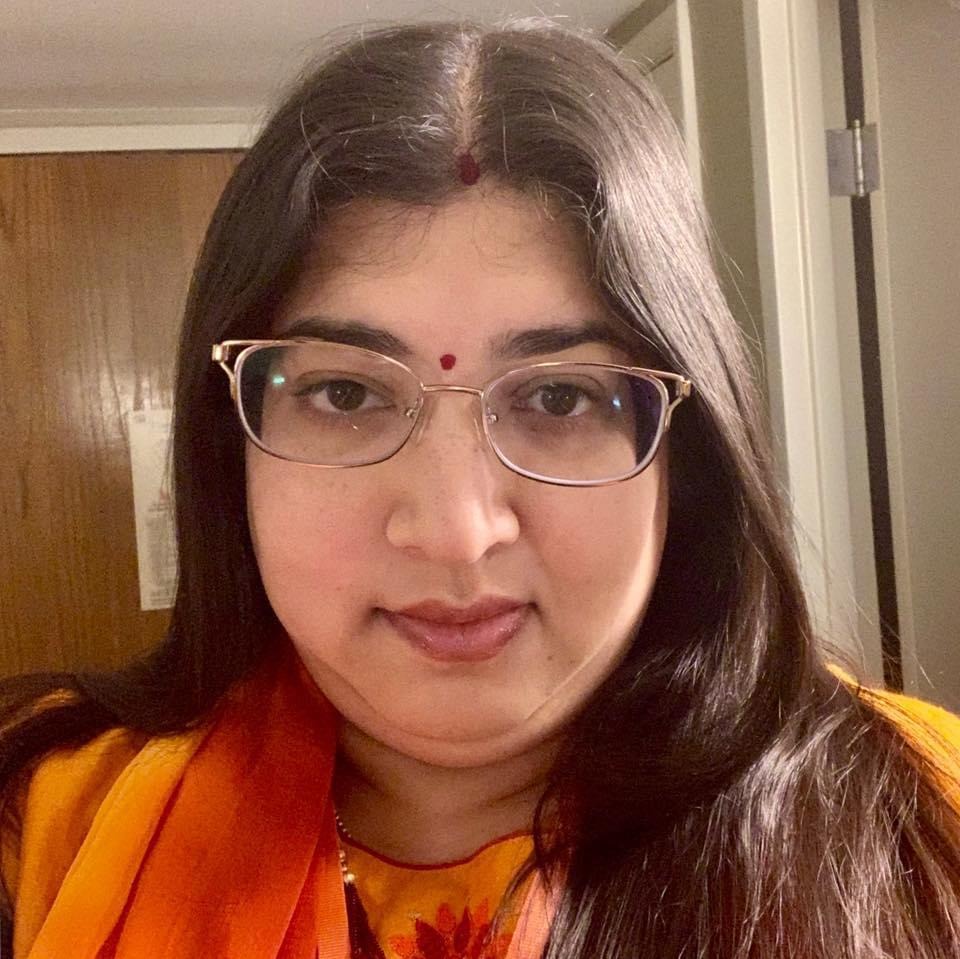
Aditi Banerjee’s first novel, The Curse of Gandhari, a successful bestseller, was published by Bloomsbury India in September 2019. Her second novel, The Vow of Parvati, was also published by Bloomsbury India in April 2022. She has also published Hindu Love Stories: Dharmically Ever After in February 2022. She is a practicing attorney at a Fortune 500 financial services company in the US and has also completed an Executive MBA at Columbia University. She earned a Juris Doctor from Yale Law School and received a B.A. in International Relations, magna cum laude, from Tufts University. She is a prolific writer and speaker about Hinduism and the Hindu-American experience. She is a member of the Indic Academy and Indic Book Club, which sponsored a successful six-city book launch tour for The Curse of Gandhari in September 2019 across India. She co-edited the book, Invading the Sacred: An Analysis of Hinduism Studies in America in collaboration with Rajiv Malhotra, and has authored several essays in publications such as The Columbia Documentary History of Religion in America since 1945 and Buddhists, Hindus, and Sikhs in America: A Short History (Religion in American Life) (Oxford University Press). Her articles have also been published in Outlook India and many other publications. In her free time, she enjoys wandering the Himalayas, cooking with the latest kitchen gadgets, hunting for that perfect cup of coffee, and reading about history and world literature.
Madhavi Kolhatkar
Retired Professor, Scholar
Madhavi Kolhatkar joined the Dictionary department of Deccan College as a Research Assistant in 1973 and retired in 2010 as Professor. She is the author of 11 Books, 94 research articles (56 in English, 36 in Marathi and 2 in Sanskrit) and 10 review articles. 2 more books are currently in-press with over two scores of articles (English - 11, Marathi - 9, Sanskrit - 2) more ready for publication. She has been part of over 40 programs (talks, discussions, interviews, lessons etc.) of All India Radio, Pune.

Rajnish Kumar Mishra
Professor, Scholar
Prof. Rajnish Kumar Mishra teaches at School of Sanskrit and Indic Studies, Jawaharlal Nehru University, New Delhi. His teaching and research areas involve Kashmir Shaivism, Buddhism, Sanskrit linguistics, Sanskrit poetics, Asian Literature, Philosophy of Language, Comparative Poetics and Comparative Religion. Dr. Mishra has been/is associated with national and international academic projects, such as Encyclopedia of Hinduism (associate editor, 2010), Encyclopedia of Indian Poetics (as an assistant editor, a UAI, UNESCO funded project of Sahitya Akademi, New Delhi, under publication), Towards Asian Poetics: An Interface Study of India, Korea, China and Japan (2016, Academy of Korean Foundation, Seoul, South Korea) and Indo-Irish Anthology. He has published a widely reviewed book titled Buddhist Theory of Meaning and Literary Analysis (1999) and haiva Philosophy and Literary Theory (2019). He has published several research papers in national and international refereed journals. He has also contributed chapters in the edited books and proceedings and has delivered invited lectures. Dr. Mishra was awarded Okita Memorial Fellowship by Japan Foundation and the Indian Council of Cultural Relations in 1998. The Indian Council for Cultural Relations and South Asian Institute (SAI), University of Heidelberg (Germany) had offered Dr. Rajnish Kumar Mishra (2012) a very prestigious chair (Professor Heinrich Zimmer Chair) for two years to teach Indian Intellectual History.
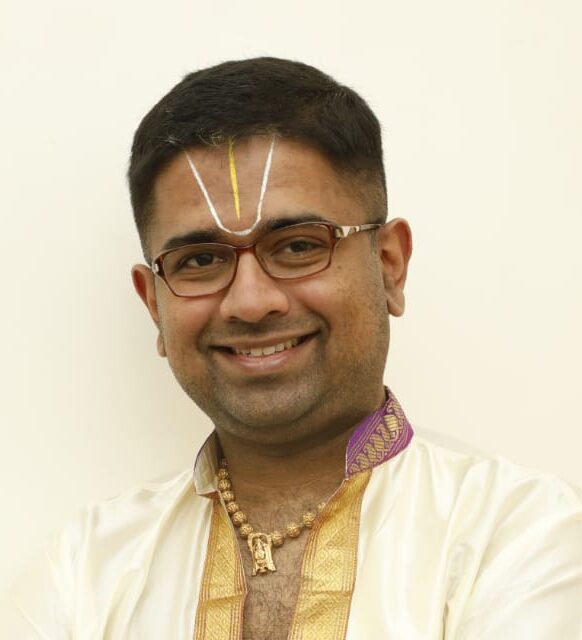
Dushyanth Sridhar
Scholar
Dushyanth Sridhar (www.desikadaya.org/about) is one of the most sought after public speakers in Sanātana Dharma who renders discourses in English and Tamil. He has rendered over 3500 discourses in 125 cities across 23 countries. His discourses are featured regularly in regional TV channels. He enjoys a wide spectrum of over one million followers on his website (www.desikadaya.org) and social media channels cumulatively. Abhinava e-Pātashālā, his e-learning portal has provided courses to over 7000 learners from 40 countries sans any discrimination. He is a sought-after panelist in national news channels (Times Now, Republic, CNN-News18). He has produced and directed Śākuntalaṃ, the acclaimed Sanskrit movie. He has acted in the movie 'Vedānta Desika:' as the protagonist besides penning its story and dialogues. He has also authored a coffee-table book on Vedānta Desika that has been critically acclaimed and is best selling in its genre. He has organized heritage tours with over 3000 yātris in the last 9 years. He conceptualizes grand thematic classical dance productions that have been venerated for their cultural value in the art world. He manages Desika Dayā, a charitable trust that has donated and sponsored cultural activities for over 8 million INR. His Twitter handle is one of the select few that Shri Narendra Modi (Hon.PM of India) follows. He is a recipient of coveted titles like Sarva Kalā Chudāmani and Harikathā Bhārati. He was declared a global '30-under-30' by BITSAA. He is an alumnus of BITS, Pilani and interned at the Indian Institute of Science, as an IAS fellow. He currently lives with his family in Bengaluru.
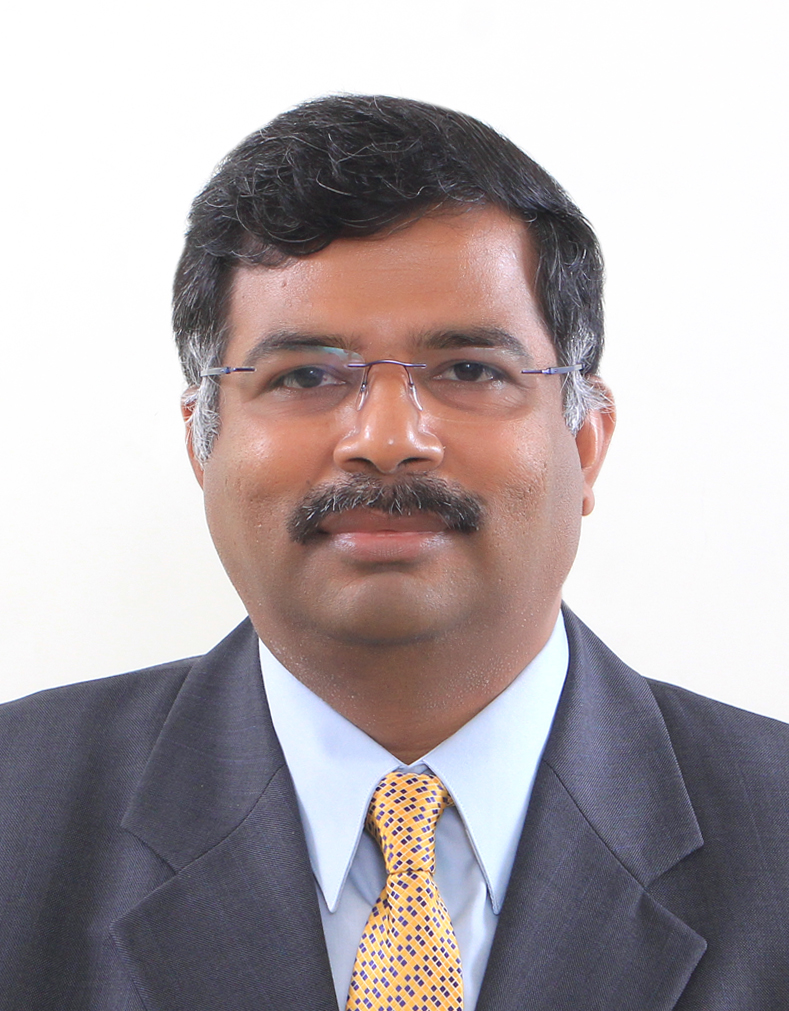
Sridhar Potaraju
Advocate on Record, Supreme Court of India
Shri Sridhar Potaraju, an accomplished Advocate on Record hailing from Hyderabad, Telangana, boasts an illustrious legal journey spanning over two decades. A distinguished alumnus of Osmania University, he honed his legal acumen at the Campus Law Center. With a rich background in research, he commenced his career at renowned law firm M/s Lakshmikumaran & Sridharan, delving into Indirect Taxes. Guided by the eminent Shri P.S Narasimha, he gained exceptional experience at the Supreme Court of India. Transitioning to independent practice in 2002, he earned the coveted position of Advocate on Record in 2006, showcasing his mettle. Sridhar Potaraju's legal prowess encompasses intricate commercial litigation encompassing infrastructure projects, IP rights, environmental laws, and technology sector consultations. A pivotal figure in landmark cases, including the Sri Ram Janmabhoomi case, where he was part of the core legal team and significant judgement on Hindu women's property rights. His expertise extends to issues concerning Sanatan Dharma before the Supreme Court of India. He is also an avid learner of wisdom from Itihasas and Puranas, as demonstrated by his authored work "Maxims From Mahabharata." Moreover, his insights have found expression in notable publications, including "Dharma is the Atman of Civilizational and Cultural Heritage of India" in News 18, "Deconstructing the Legalese of Demonetisation 2016" in Legally Speaking, The Sunday Guardian, and enlightening articles such as “The Marxist Spin to Indian History Unearthed in The Sri Ram Janmabhoomi Case'' published in Swarajya on Oct 28, 2020.
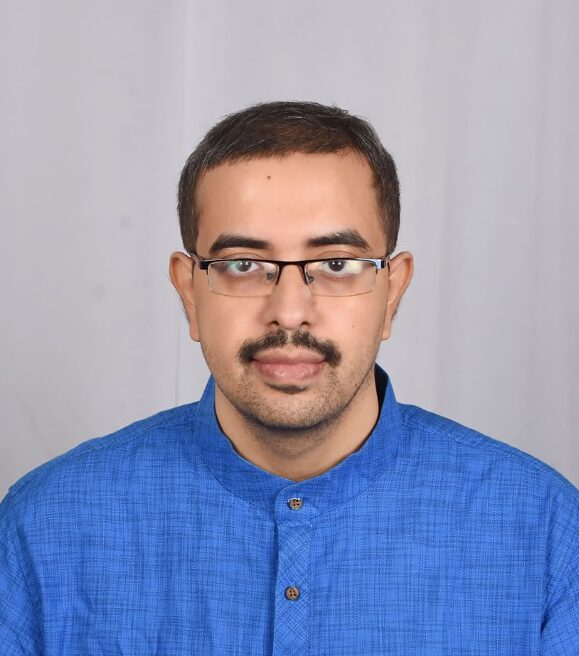
Nithin Sridhar
Director & Chief Curator of INDICA Center for Moksha Studies (Advaita Academy)
Nithin Sridhar is a Practising Hindu, Author, and Speaker He is the Director & Chief Curator of INDICA Center for Moksha Studies (Advaita Academy) dedicated to the dissemination of Advaita Vedanta.
He has authored six books on various aspects of Hindu culture and practice. His first book “Musings On Hinduism '' provided an overview of various aspects of Hindu philosophy and society. His book ‘Samanya Dharma’ enunciates upon general tenets of ethics as available in Hindu texts. His latest book ‘Isopanishad: An English Commentary’ is an English translation and commentary on one of the prominent Hindu texts. However, his most widely read book is “Menstruation Across Cultures: A Historical Perspective'' which examines menstruation notions and practices prevalent in different cultures & religions from across the world. His upcoming book is a commentary on the opening verses of Manusmriti.
He teaches courses on Hinduism for Indica Courses and regularly contributes articles and delivers lectures on religion, spirituality, and culture at various platforms. Earlier, he had also served as the Editor of IndiaFacts- a portal on Indian history and culture. He tweets at @nkgrock.
Abhinav Agarwal
Author, Curator - INDICA Books
Abhinav Agarwal lives in Bangalore with his wife and two children. He holds a Bachelor's Degree in Computer Engineering from Mumbai University and is a Gold Medallist from the Indian Institute of Management, Bangalore. He is the author of "Completing Vyasa's Mahabharata: 67 Upakathas for the Modern Reader", a retelling of the 67 upakhyaanas from the Critical Edition. He is also the author of a fiction thriller, "Predators and Prey". In 2018 he edited and self-published his daughters' book, 'A Year with the Maha Puranas'. He is theTechnical Editor of an Oracle Press McGraw-Hill book. He is also the curator of Indica Books.
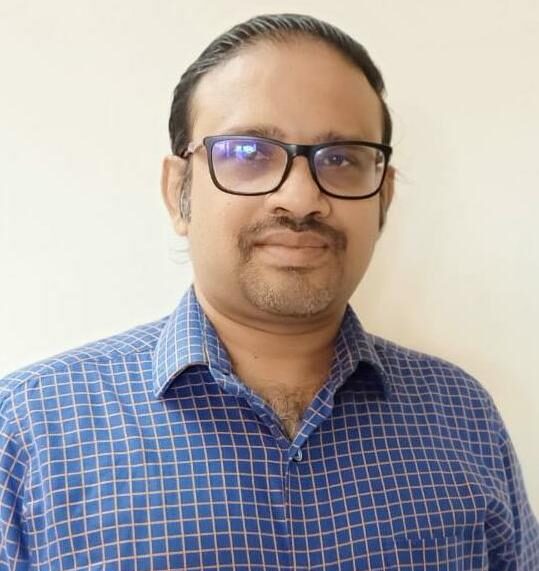
GV Shivakumar
Scholar-in-Residence and Consulting Editor for IndicA Today
Shivakumar GV is an IT professional in the domain of Learning and Development, with a deep interest in Bharateeya Samskriti. He is proud to be part of the Indica fraternity as a Scholar-in-Residence and Consulting Editor for IndicA Today. He is the Curator of “Aryaa - An Anthology of Vedic Women” - a collection of 10 stories on 10 Vedic Women written by 10 different authors published by Indic Academy. Through Aryaa he hopes to create new cultural conversations on the glorious women of Bharatavarsha. He is also one of the authors of ‘’Unsung Valour: Forgotten Wars of Kurukshetra’’ - curated by Sai Swaroopa Iyer for Indica. As an Indica Scholar, he studies Indic Civilizational Thought to create frameworks for application in contemporary times. He writes on Mahabharata, Puranas, Civilizational thought and anchors Kannada content at IndicA Today. He is a storyteller imagining narratives that appeal to audiences of diverse spectrums.
He is a BE graduate from National Institute of Technology, Surat and an MTech from IIT Mumbai. He is greatly inspired by the Rivers of India – Saraswatee in particular.
Srirama Chakradhar
Author, Thavaasmi
To present life and skills through the lens of Ramayana in the most methodical approach, Srirama Chakradhar has started his research on our rich Vedic Scriptures, especially Sri Valmiki Ramayana, 10+ years ago. Thavaasmi, Manasvi and the current Thapasvi are his brain creations. Thavaasmi series of conversations and books are of first of its kind practical guides and pedagogical models in the entire World, which aims to make a human out of man. He strongly believes that service and spirituality are two sides of the same coin. A passionate teacher and personality development trainer by choice, Srirama believes in addressing the roots than on ephemeral cosmetic solutions.
Dr. Srilakshmi Peddada has been an academician for 25 years, committed to the philosophy of continuous learning. She have a deep interest in facilitating and doing research that is interdisciplinary in nature. Dr. Srilakshmi has a proven track record in providing quality education, with a particular focus on jurisprudence.
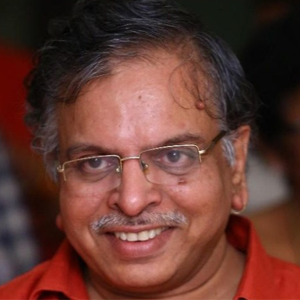
Dr Nagaraj Paturi
Senior Director & Chief Curator, INDICA
Trained in Sanskrit and Advaita Vedanta by his hyper-polyglot, polymath and spiritually accomplished sakala-shaastra-paarangata father, late Sri Paturi Sitaramanjaneyulu garu, Dr Nagaraj Paturi is seriously committed to the transmission of Vedic sciences to the present generation. In his PhD thesis (1998, University of Hyderabad), he developed an Indic Model of Myth Criticism of Literature and in his MPhil (1987, University of Hyderabad), he foregrounded Vakyapadiya as the theoretical foundation of the Ashtadhyayi. In addition to over 50 publications and about 60 conference/seminar/workshop papers, Dr Paturi has designed several courses pertaining to the contemporary applications of Vedic Sciences and has been successfully teaching them and getting them taught. Formerly Senior Professor of Cultural Studies FLAME School of Communication (& FLAME School of Liberal Education) and a Visiting Professor, University of Chicago (USA), Dr Paturi is currently Senior Director and Chief Curator at INDICA, a Distinguished Professor, Curriculum Designer, Executive Committee Member, Board of Studies, MIT School of Vedic Sciences (Pune, Maharashtra), Member, Board of Studies at Kavikulaguru Kalidasa Sanskrit University (Ramtek, Maharashtra) and Rashtram School of Public Leadership (Sonipat, Haryana). He is also the Editor-in-Chief of International Journals of Studies in Public Leadership and is a member of the Advisory Council of Veda Vijnana Shodha Samsthanam (Bengaluru, Karnataka). He has provided consultancy to numerous culture research, theatre, and dance innovation projects. He has authored scores of creative writing works for Classical Dance, Modern Theater, and magazines and has delivered several series of talks and other programs on Radio and Television channels.
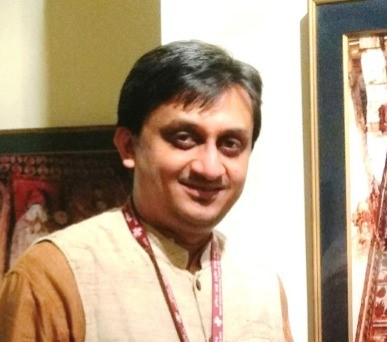
Megh Kalyanasundaram
Director – Special Projects, INDICA
An Indian citizen with close to nine years of lived experience in China, he is an alumnus of Indian School of Business, Hyderabad, and currently the Director of Special Projects at INDICA. His post-graduate specialization in Strategy, Leadership and Marketing included a study of research methods. His professional experience includes stints as a Market Leader at a Global Fortune 50 firm while he has served a term on the Board of a Shanghai-based not-for-profit. His academic writings span some aspects of ancient Indian chronology, Indian Knowledge Systems, Landscape in Indic texts, Ancient Indian Jurisprudence, Ideas of India and Philosophy. Other professional and pro-bono pursuits have included building differentiated digital platforms for Indic texts targeted at specific learning and research needs and music. His research-based compositional Sanskrit music album ‘Bhārata and her Kāśmīra’ has been listed by the Indira Gandhi National Centre for the Arts. His subsequent music album ‘Indian Knowledge Systems and Yāskācārya’s Nirukta’ has recently been accepted for listing by the Vedic Heritage Portal. In 2022, the National Museum Institute invited him to contribute content for multiple projects currently underway, including ones on Jammu Kashmir & Ladakh and Kedarnath. In 2023, he was nominated by the Chairman of ICHR as a Member of a National Committee for an initiative focused on Jammu, Kashmir, and Ladakh. His work has been featured in both editions (Chennai and Pune) of Vitasta (2023), a multi-city festival focused on Kashmir organized by the Ministry of Culture, Government of India.

